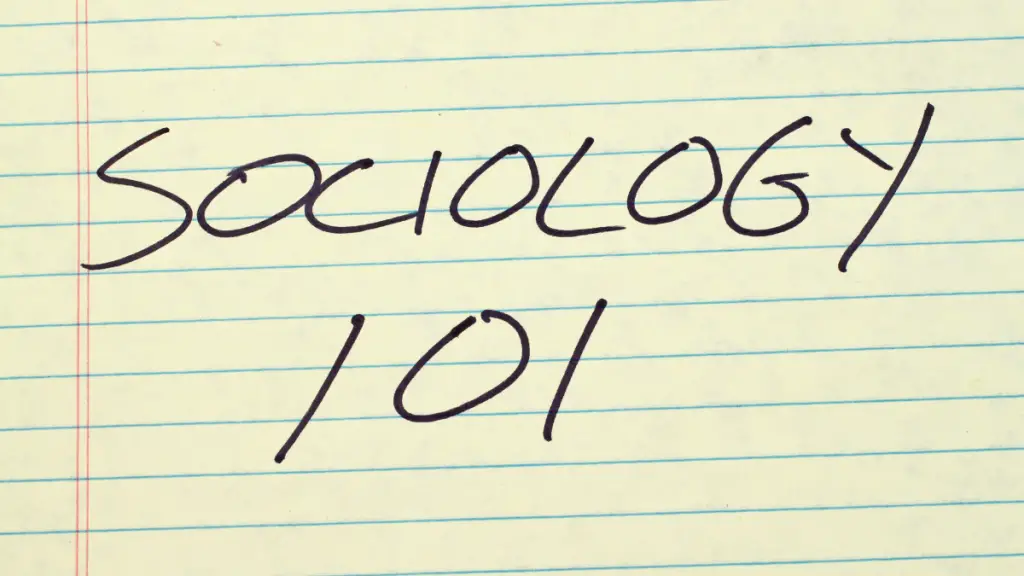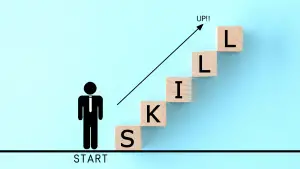Sociology is an essential discipline that studies human social behavior, relationships, and institutions. Its primary goal is to understand the complex ways in which individuals, groups, and institutions interact with one another in society. Sociology plays a crucial role in helping us understand the social dynamics that shape our world. And the ways in which they impact individuals, communities, and society as a whole.
As our world becomes more interconnected and complex, sociology has become increasingly important in providing insights and perspectives that can help us address the social, economic, and political challenges we face. Thus, it is the scientific study of society, social relationships, and human behavior. It examines how individuals and groups interact with one another, how societies are structured and organized, and how social institutions such as education, government, and the economy operate.

This essay, therefore, will explore the reasons why sociology is important, the value it brings to our world, and the ways in which it can drive positive change in our communities and professional sectors. By examining the contributions of sociology to our understanding of social phenomena, we can better appreciate its significance in shaping our world and addressing its challenges.
The Values Sociology Brings to the World Around Us
One of the values sociology brings to the world around us is its ability to help us understand the social world. Sociologists use a variety of research methods to study different aspects of society, such as surveys, interviews, and observational studies. They examine social structures, such as institutions and organizations, and study how they affect individuals and groups. Thus, by examining patterns of behavior and interaction, sociology helps us better understand the social world and how it operates. For example, sociologists have studied the impact of social class on educational attainment, the role of race and ethnicity in shaping health outcomes, and the effects of gender on the workplace.
Another value of sociology is its ability to recognize and solve social problems. Sociologists often focus on issues such as inequality, discrimination, and social injustice. By studying these issues, sociologists can help us develop strategies to address them. For instance, sociologists have studied the causes and consequences of poverty and developed policies to reduce its impact. They have also examined the ways in which race and ethnicity affect access to healthcare and have advocated for policies that promote health equity.
Sociology also challenges commonly held beliefs and assumptions about society, encouraging us to think critically about the world around us. Sociologists examine the ways in which social structures and institutions shape individual and collective behavior. They question commonly held beliefs about society and challenge us to think more deeply about the social world. For example, sociologists have challenged the idea that race is a biological characteristic, showing instead that it is a social construct that has been used to justify discrimination and inequality. They have also examined the ways in which gender roles are constructed and have shown how they can limit individuals and perpetuate inequality.
Finally, sociology helps us navigate the complexities of a rapidly changing world by studying social change and the ways in which societies adapt to new circumstances. Sociologists can help us understand the effects of globalization, technological change, and other social transformations. By studying these changes, sociologists can help us develop strategies to adapt and thrive in a rapidly changing world.
How Sociology Brings Values to Our Immediate Communities
Sociology is an important discipline that brings value to my immediate communities by enhancing our understanding of social issues, promoting social justice and equality, and informing policy decisions. For example, Collins (2004), in his book titled “Interaction Ritual Chains” argues that sociology can provide valuable insights into the micro-level dynamics of social interactions, which can have significant impacts on immediate communities. He uses the concept of “interaction ritual chains” to analyze how social interactions create and reinforce social structures and institutions, and how these structures can be transformed through collective action.
One of the primary ways in which sociology brings value to my immediate communities is by providing a deeper understanding of social issues. Sociologists use a variety of research methods to study social phenomena, including surveys, interviews, and participant observation. Through this research, sociologists are able to identify patterns and trends in social behavior. As well as the underlying causes of social issues such as poverty, inequality, and discrimination. This understanding can help individuals and communities develop more effective strategies for addressing these issues. Leading to improved outcomes for all members of the community.
Additionally, sociology plays a critical role in promoting social justice and equality. By examining the ways in which social structures and institutions perpetuate inequality, sociologists are able to identify areas where change is needed to create a more just and equitable society. For example, sociologists have contributed to the development of anti-discrimination laws and policies, as well as efforts to promote diversity and inclusion in workplaces and schools. By promoting social justice and equality, sociology can help to create a more cohesive and harmonious community where all members are valued and respected.
Finally, sociology can inform policy decisions by providing policymakers with a deeper understanding of the social issues facing their communities. By drawing on sociological research, policymakers can develop more effective policies and programs that address the root causes of social problems. Rather than simply treating the symptoms. For example, policymakers can use sociological research to design programs that address the underlying causes of poverty, such as lack of access to education and health care. By incorporating sociological insights into policy decisions, policymakers can make more informed choices that improve outcomes for their constituents.
Therefore, sociology is an important discipline that brings value to my immediate communities in a variety of ways. By enhancing our understanding of social issues, promoting social justice and equality, and informing policy decisions, sociology can help to create a more just and equitable society where all members are valued and respected. As such, it is important that we continue to support and invest in the study of sociology. Both in academic settings and in our communities more broadly.
Professional Sectors in which Sociology have an Opportunity to make a Valuable Difference
Sociology has the potential to make a valuable difference in various professional sectors by providing insights into social phenomena, identifying social problems, and proposing solutions.
Firstly, sociology can make a valuable difference in the field of education. Sociologists conduct research to understand the factors that influence student performance, such as socioeconomic status, race, and gender. This research can help educators design interventions that address disparities in educational outcomes. For example, sociologists have found that students from low-income families often lack the resources and support needed to succeed in school. By identifying these barriers, sociologists can help educators design programs that provide resources, such as tutoring and after-school programs, to help these students succeed.
Secondly, sociology can make a valuable difference in the field of criminal justice. Sociologists can study the factors that contribute to crime, such as poverty, inequality, and social exclusion. This research can inform policies that address the root causes of crime, rather than focusing solely on punishment. For example, sociologists have found that communities with high levels of social cohesion and strong social networks have lower crime rates. Policymakers can use this research to design interventions that promote social cohesion and reduce crime.
Thirdly, sociology can make a valuable difference in the field of healthcare. Sociologists can study the social determinants of health, such as income, education, and social support. This research can help healthcare providers design interventions that address health disparities and improve health outcomes. For example, sociologists have found that individuals with low levels of education are more likely to experience poor health outcomes. Healthcare providers can use this research to design programs that promote education and improve health outcomes.
Fourthly, sociology can make a valuable difference in the field of business. Sociologists can study organizational behavior, workplace culture, and the impact of globalization on the workforce. This research can help businesses design policies and practices that promote diversity and inclusion, improve employee morale and productivity, and promote social responsibility. For instance, sociologists have found that diversity in the workplace can lead to increased innovation and better decision-making. Businesses can use this research to design policies that promote diversity and inclusion.
Therefore, sociology has the potential to make a valuable difference in various professional sectors. By providing insights into social phenomena, identifying social problems, and proposing solutions, sociologists can help educators, policymakers, healthcare providers, and businesses design interventions that promote social justice, equity, and well-being. The contributions of sociology are essential to creating a more just and equitable society.
How Sociological Theories and Research Methods Help Drive Positive Change in the World Around Us
Sociological theories and research methods can be used to drive positive change in the world around us by offering insights into social phenomena, identifying social problems, and proposing solutions.
Firstly, sociological theories can help drive positive change by providing a framework for understanding social phenomena. For example, conflict theory, which posits that society is characterized by inequality and conflict between different groups, can help us understand issues such as poverty, discrimination, and social injustice. By understanding the root causes of these issues, we can develop interventions that address the underlying structural factors that contribute to them.
Secondly, sociological research methods can be used to collect data and generate evidence that can inform policy and practice. For example, surveys, interviews, and focus groups can be used to gather information about the experiences and attitudes of individuals and groups. This information can be used to design interventions that address the social problems identified by sociological theories. For example, research on the experiences of minority communities can inform policies that promote diversity and inclusion.
Thirdly, sociological theories and research methods can help drive positive change by promoting social activism and advocacy. By providing insights into social problems and highlighting their impact on individuals and communities, sociologists can inspire and mobilize people to take action. For example, research on the impact of climate change on vulnerable communities can inspire people to take action to reduce carbon emissions and promote sustainability.
Conclusion
Sociology is a critical field of study that offers valuable insights into the social world, and its importance cannot be overstated. Through its focus on understanding social structures, relationships, and institutions, sociology provides a framework for understanding how society works, and how individuals and groups interact within it. Sociology also brings significant value to the world around us by providing us with a deeper understanding of social issues such as inequality, poverty, and social justice. It helps us to identify and address social problems and provides tools for creating positive social change.
In our immediate communities, sociology can be used to understand the dynamics of social relationships, group behavior, and the impact of social structures on individuals and groups. Sociology has an opportunity to make a valuable difference in various professional sectors such as healthcare, education, criminal justice, and social services.
Additionally, in the criminal justice sector, sociological theories can help us understand the root causes of crime and develop effective solutions to reduce it. Sociological theories and research methods can drive positive change in the world around us by providing evidence-based insights that can be used to inform policy and practice. Overall, sociology is a vital field of study that has the potential to make a significant impact on the world around us.







